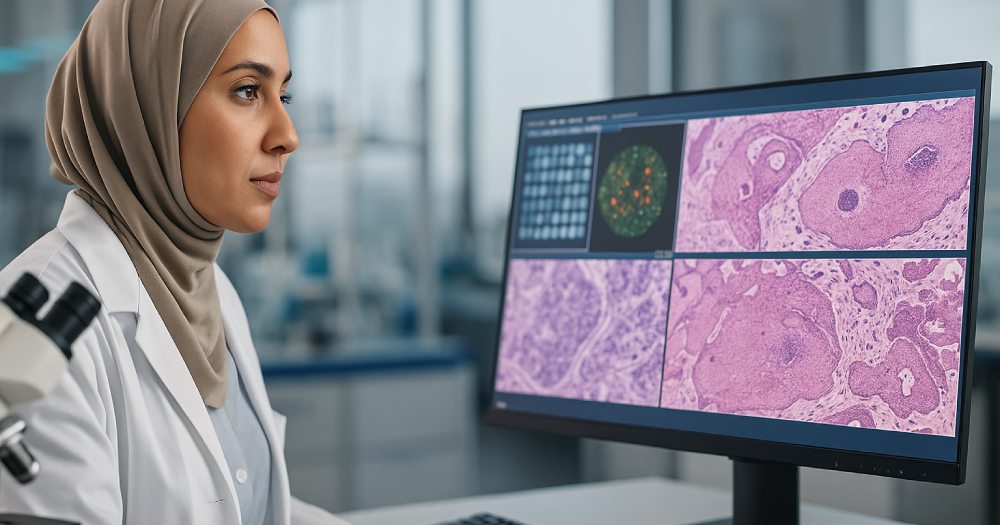Roche helping Egypt expand digital pathology, AI diagnostics

Egypt is stepping into the future of medicine — and Roche Diagnostics is holding the door wide open. In a landmark collaboration with the Ministry of Health and the Universal Health Insurance (UHI) system, Roche is helping Egypt roll out digital pathology and AI-powered diagnostics across its public health system.
It's not just tech for tech's sake. This is about getting faster, more accurate diagnoses to people who've been waiting too long and traveling too far. "By reducing diagnostic turnaround times and enabling telepathology, this innovation will improve both the speed and equity of care delivery," said Liliane Kanaan, North Africa Lead and GM for Egypt at Roche Diagnostics.
Egypt is among the first African countries to bet big on digital pathology-and the stakes couldn't be higher.
How does it work?
Here's the short of it:
- Digital pathology transforms glass slides into high-resolution digital images.
- These can be viewed remotely, allowing pathologists to read and interpret tissue samples without needing to be in the same room-or even the same country.
- When AI gets added to the mix, it helps flag patterns, identify anomalies, and prioritize cases for faster review.
Roche has been deploying digital pathology scanners and layering in AI tools to modernize pathology labs across the country. This means doctors in rural Egypt can now get second opinions from top specialists-without putting patients on a bus for hours.
And the benefits go both ways: "This significantly decreases the travel time and physical burden on both patients and healthcare professionals, while also accelerating diagnosis and treatment planning," Kanaan noted.
Why does it matter?
Because time matters. Because location shouldn't dictate care. Because the shortage of pathologists in Africa is dire-about one per million people, compared to one per 25,000 in places like the U.S. or U.K.
Roche's approach doesn't just deliver equipment; it lightens the load for overworked health workers, tackles critical skills gaps, and builds local capacity. "Notably, this solution directly addresses the severe shortage of pathologists across Africa," said Kanaan.
And then there's the track record. Roche's fingerprints are all over Egypt's recent public health wins:
- Helped eliminate Hepatitis C at scale
- Supported national blood safety programs
- Delivered over two million COVID-19 tests in the pandemic's early days
- Boosted breast cancer diagnostics for over 30 million women
- Powered up 26 public pathology labs
- Delivered 20,000+ full breast cancer diagnostic panels
- Now aiding a cervical cancer early detection campaign that has already reached 20,000+ women
This isn't a one-and-done story. It's a long-term partnership anchored in outcomes.
The context
Egypt has been investing heavily in its health infrastructure — and Roche is no newcomer to the scene. With more than 20 years in the country, the company has built relationships that go beyond transactions. Their model? Tailor global solutions to local needs.
That means:
- Collaborating with military hospitals, NGOs, and universities
- Offering lab software, health consultancy, and training, not just machines
- Respecting local regulations and working within national frameworks like the Presidential Women's Health Initiative
"Aligning with national priorities ensures innovation addresses the population's most pressing needs," Kanaan said.
Digital pathology may sound niche, but in Egypt's hands-and with Roche's backing-it's becoming a cornerstone of accessible, data-driven, equitable care.
And that's not just progress. That's transformation.
💡Did you know?
You can take your DHArab experience to the next level with our Premium Membership.👉 Click here to learn more
🛠️Featured tool
 Easy-Peasy
Easy-Peasy
An all-in-one AI tool offering the ability to build no-code AI Bots, create articles & social media posts, convert text into natural speech in 40+ languages, create and edit images, generate videos, and more.
👉 Click here to learn more


